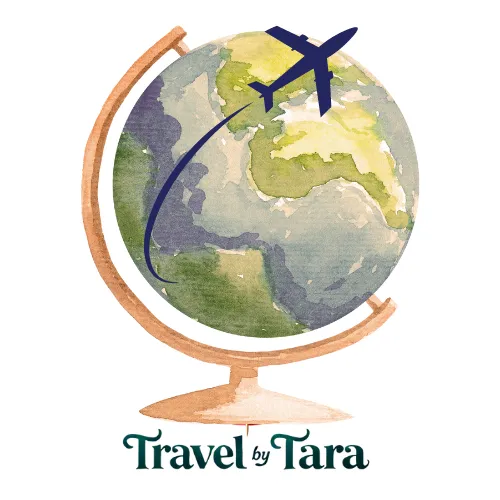Travel, by Tara
Helping you plan AWESOME Vacations
Ready to Cruise?
Are you the kind of person who just wants to actually relax on vacation?
Like, no cooking, no stressing, no figuring out where to eat or how to get around? Just you, a cozy cabin, endless food, poolside lounging, maybe a show or two — and zero decisions to make?
If that sounds like your dream, then cruising might just be your perfect kind of getaway.
Here are some of the types of cruises you could take:
🌴 Caribbean Cruises
🚢 Disney Cruises
❄️ Alaska Cruises
🇪🇺 Europe / River Cruises
🧘♀️ Themed & Wellness Cruises
🎉 Group Cruises
💼 First-Timer Friendly Options

Booking Your Cruise
I'm all about helping you know how to plan your own travel. When it comes to booking a cruise, it can be pretty straight forward. But if you want guidance on booking a cruise I can help you:
🚢-Choose the right cruise line and ship
🚢-Give you cabin selection advice (balcony vs. interior vs. suite)
🚢-Port day planning (excursions, DIY options)
🚢-Packing tips and checklists
🚢-Help you understand cruising contracts, fees, and tipping
🚢-Custom travel itinerary before and after your cruise
-Information about perks & discounts
🚢-Information about each cruise line's dining, drink packages, and extras like wifi onboard.
Cruise FAQs
When’s the best time to book a cruise?
Generally? The earlier the better, especially if you want a specific cabin type or are sailing during a popular season (like summer, holidays, or spring break). That said, last-minute deals do exist, but they’re more limited and usually for people with flexible schedules. For the best price + choice, I recommend booking 6-12 months in advance.
Do I need a passport?
It depends! For cruises that start and end at the same U.S. port (called closed-loop cruises), you can usually get away with a birth certificate and government ID.
BUT: if there’s any chance you’ll need to fly home from a foreign port (flight delays, emergencies, etc.), you’ll wish you had a passport.Bottom line: I strongly recommend bringing one - it just makes everything easier.

What’s included in the cruise price?
Most cruise fares include:
Your room (aka your stateroom)
All meals in the main dining areas + buffets
Basic drinks (water, juice, tea, sometimes lemonade or coffee)
Onboard entertainment (shows, trivia, movies, comedy, etc.)
Pool access, fitness centers, and kids' clubs (if applicable)
But extras like soda, alcohol, specialty dining, excursions, Wi-Fi, and gratuities?
Those often cost more.
Is travel insurance worth it for cruises?
Short answer: if you want the peace of mind
Cruises are a little different than land vacations - if you miss the ship (even by a few minutes), it will leave without you. Travel insurance can cover things like:
-Missed connections
-Medical emergencies at sea
-Canceled trips
-Lost baggage
Some cruise lines even require certain types of coverage for international sailings.
Can I cruise if I get seasick easily?
Modern cruise ships are huge and have stabilizers that help smooth out most motion.
Tips for sensitive travelers: Pick a mid-ship cabin on a lower deck
Pack motion sickness bands or meds (like Dramamine or Bonine)
Start taking them before you feel sick
There are also natural remedies like ginger or acupressure

How do gratuities work?
Gratuities (aka tips for the crew) are usually automatically added to your bill each day - usually around $14–$20 per person, per day. Some cruise lines let you prepay
Some let you adjust them
You can always give extra tips in cash if someone goes above and beyond.
Can I bring alcohol or snacks on board?
It varies wildly by cruise line:Most lines allow one bottle of wine or champagne per adult
Hard liquor? Usually not.
Snacks? Usually okay, just nothing perishable or homemade.

Not Sure What to Pack?
I made a packing list that you can download:
Want Help Booking?
I can help take the stress out of planning. Whether it’s your first cruise or your fifteenth, I’m here to help.
COMPANY

© Copyright 2026. All Rights Reserved.